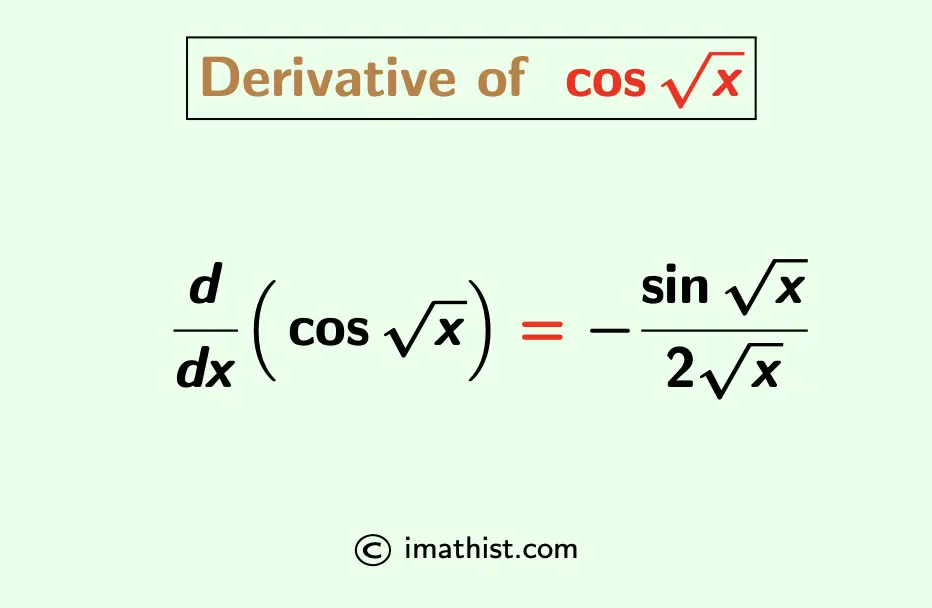The derivative of cos root x is equal to (-sin√x)/2√x. Here we will find the derivative of cos√x by the chain rule of derivatives.
The differentiation of cos(√x) with respect to x is given by
$\dfrac{d}{dx}(\cos \sqrt{x})=-\dfrac{\sin \sqrt{x}}{2\sqrt{x}}$.

Let us now find the derivative of cos root x using the chain rule of differentiation.
Derivative of cos(√x) by Chain Rule
To find the derivative of cos root x, we will use the chain rule of differentiation. Let us assume that
z = √x.
Differentiating, dz/dx = d/dx(x1/2) = 1/2 x1-1/2 = 1/(2√x), by the power rule.
Now,
$\dfrac{d}{dx}(\cos \sqrt{x})$
= $\dfrac{d}{dx}(\cos z)$
= $\dfrac{d}{dz}(\cos z) \times \dfrac{dz}{dx}$, by the chain rule.
= $-\sin z \times \dfrac{1}{2\sqrt{x}}$ as we have dz/dx = 1/(2√x).
= $-\dfrac{\sin \sqrt{x}}{2\sqrt{x}}$ as z=√x.
So the derivative of cos root x is equal to (-sin√x)/2√x, and this is obtained by the chain rule of differentiation.
Read Also
FAQs
Q1: What is the derivative of cos root x?
Answer: The derivative of cos root x is (-sin√x)/2√x.
Q2: If y= cos √x, then find dy/dx.
Answer: If y=cos√x, then dy/dx = (-sin√x)/2√x.